7 Innovative AI Tools to Supercharge Your Quality Assurance Process
Quality assurance is evolving rapidly, and AI-powered tools are reshaping how we approach software testing. Instead of relying on time-consuming manual scripts and worrying about missed defects, teams can now leverage intelligent automation solutions. Tools like Applitools for visual testing, Mabl and AskUI for UI automation, Diffblue for code-level analysis, and platforms like Testim and Accelq for comprehensive test automation are transforming the QA landscape. Even test data generation has become smarter with solutions like extracto. These innovations allow QA teams to move beyond repetitive tasks and focus on strategic testing that delivers real value. Let's explore how these cutting-edge tools can enhance your testing processes and help build better software.
Extracto
Quickly scrape web data into Google Sheets
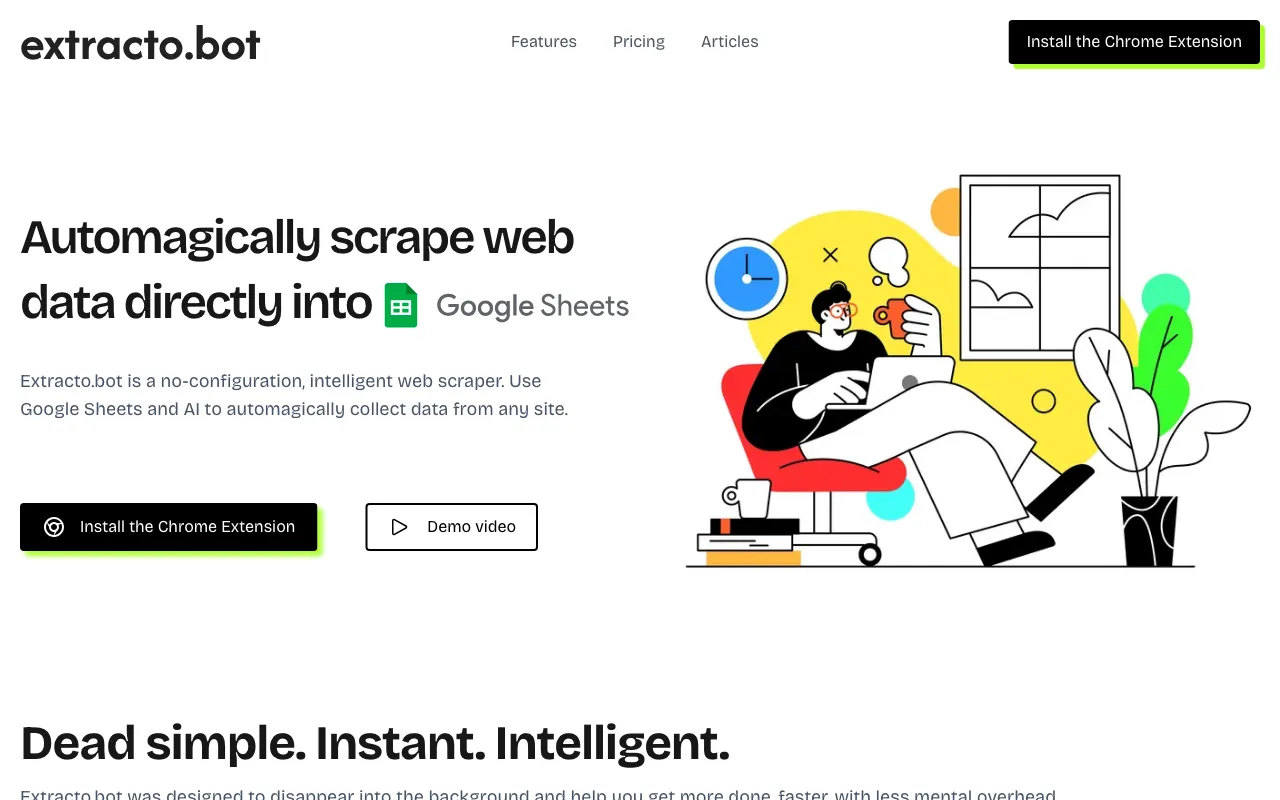
Extracto.bot makes web scraping surprisingly simple by working directly with Google Sheets. Instead of dealing with complex setups you just open a spreadsheet, pick what data you want and click to collect it. This setup works great for QA teams who need to gather info for things like checking competitors, measuring performance and making sure content is right. All you do is create columns for the data points you want grab the website URL and let it work its magic. The straightforward approach saves tons of time letting QA folks analyze results instead of manually collecting data.
The tool connects smoothly with Google Drive which really helps QA teams work better and more accurately. Whether you're comparing products across different online stores tracking what customers are saying or keeping an eye on competitor prices Extracto.bot flexes to handle various QA tasks. Since it works right in Google Sheets with no special setup needed teams can easily organize share and analyze their data which leads to smarter decisions and faster QA work. They offer different pricing options including a free starter plan so it works for different budgets and project sizes.
Link: https://www.extracto.bot
mabl
AI-driven test automation for faster software releases
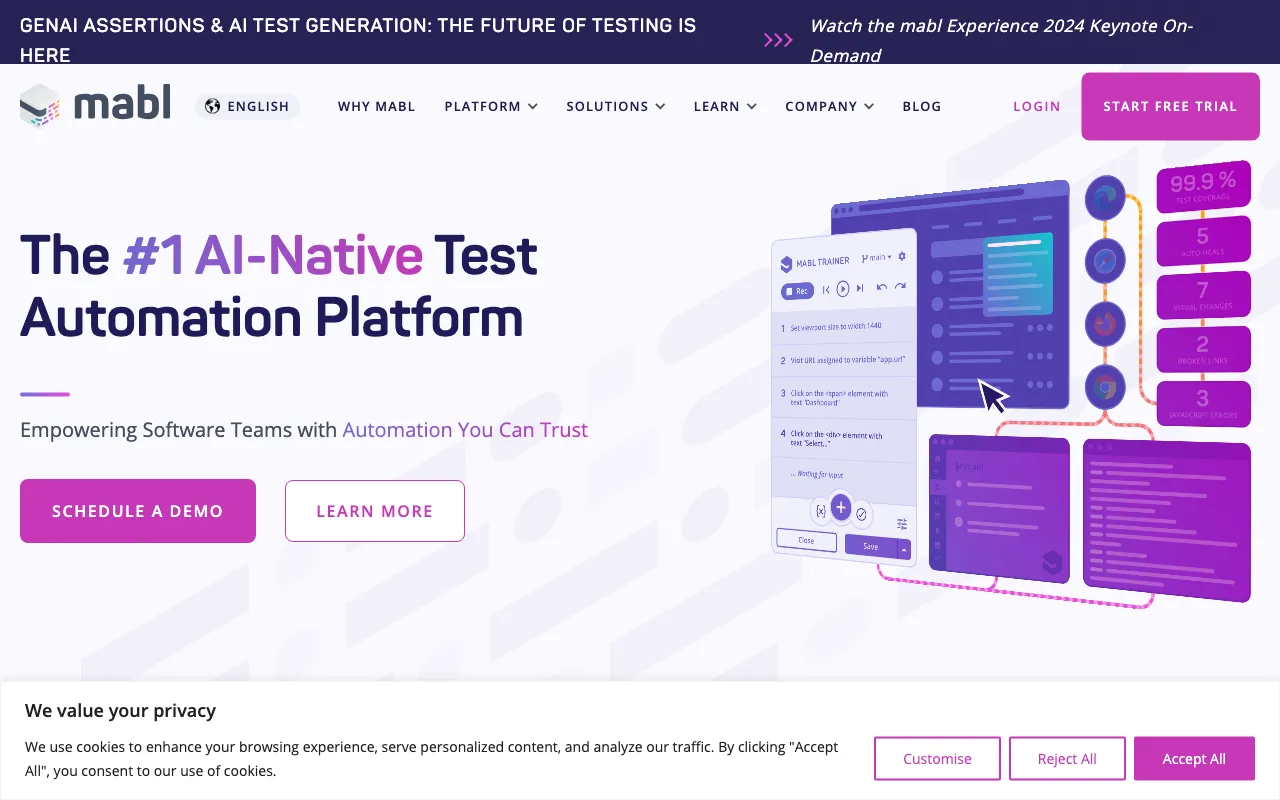
Mabl is an AI-powered low-code test automation platform that takes software quality assurance to the next level. It uses AI and generative AI to boost test coverage improve reliability and cut down on maintenance work. The platform provides a complete testing solution that covers web, mobile, API accessibility and performance testing which makes it super versatile for different QA needs. Mabl makes collaboration easier through its low-code interface that works great for both technical and non-technical team members while still giving developers full coding flexibility and AI help for tricky situations. This all-in-one approach makes mabl really valuable for QA teams who want to simplify testing and speed up their releases.
When it comes to QA professionals mabl offers some big advantages. The AI-powered auto-healing feature cuts down on test maintenance by automatically adjusting to changes in applications which frees up QA teams to focus on more important work. The platform is great at "Increasing Coverage" and "Reducing Manual Testing" which directly tackles common QA headaches. Plus mabl handles "End-to-end User Journeys" testing to make sure critical user flows work properly. It connects well with other tools and provides detailed reports that help QA teams quickly spot and fix problems leading to faster releases and better software quality. Real-world examples like Barracuda show how the platform can save lots of time and make QA work much more efficient.
Link: https://www.mabl.com/
testim
Accelerate software testing with AI-powered automation.
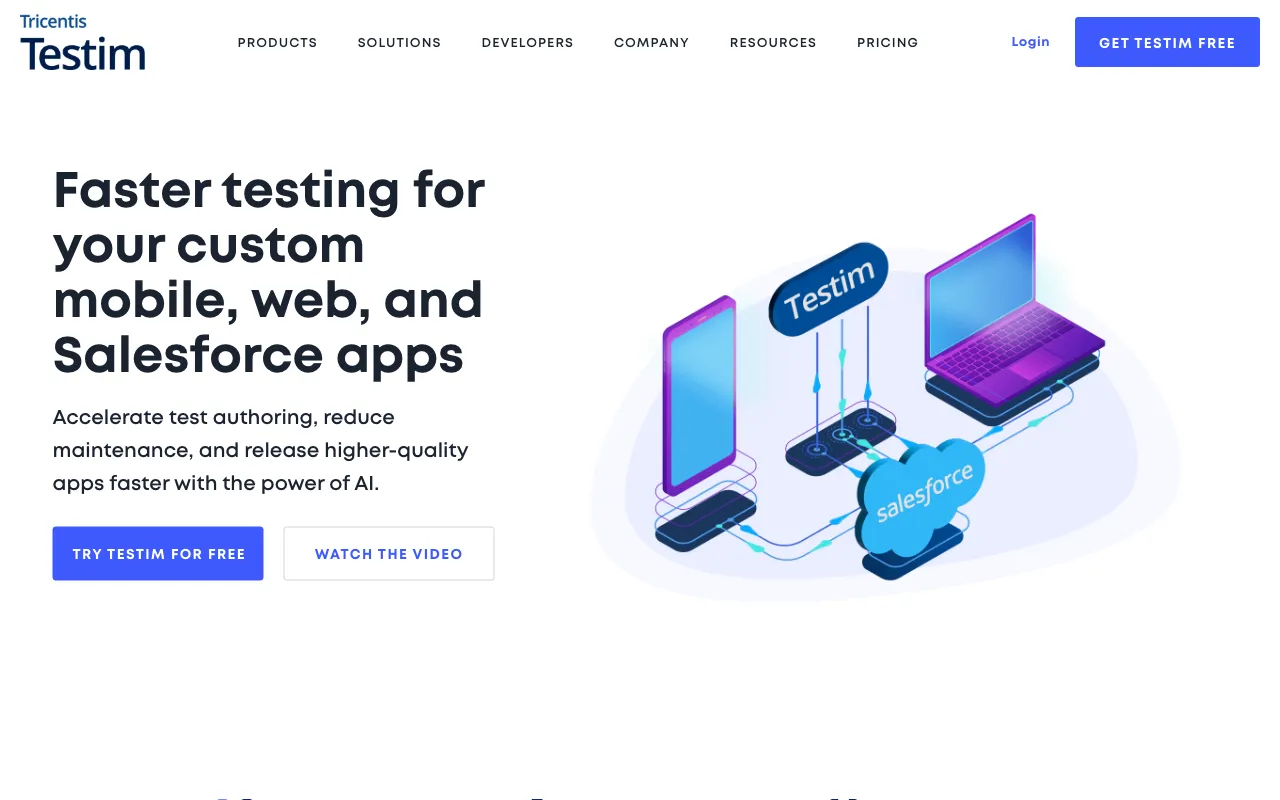
Testim helps teams streamline their software testing with AI-driven automation for web, mobile and Salesforce apps. It uses a low-code approach that makes test creation faster while keeping maintenance simple. The platform's smart AI locators adapt when applications change which means less time fixing broken tests. With features for writing tests, running them and diagnosing issues all in one place, QA teams can work more efficiently.
For testing professionals Testim provides some real advantages. Teams can quickly build stable tests that work across different platforms which solves a lot of common testing headaches. The AI technology at its core speeds up the whole process from creating tests to maintaining them and finding problems. It works nicely with tools like Jira GitHub and various CI/CD platforms so it fits right into existing workflows. By making tests faster to create and more reliable, Testim helps teams release better software more quickly. The platform includes helpful features like TestOps and root cause analysis that give QA teams more control and insight into their testing.
Link: https://www.testim.io/
Applitools
Visual AI testing platform that simplifies complex UI testing.
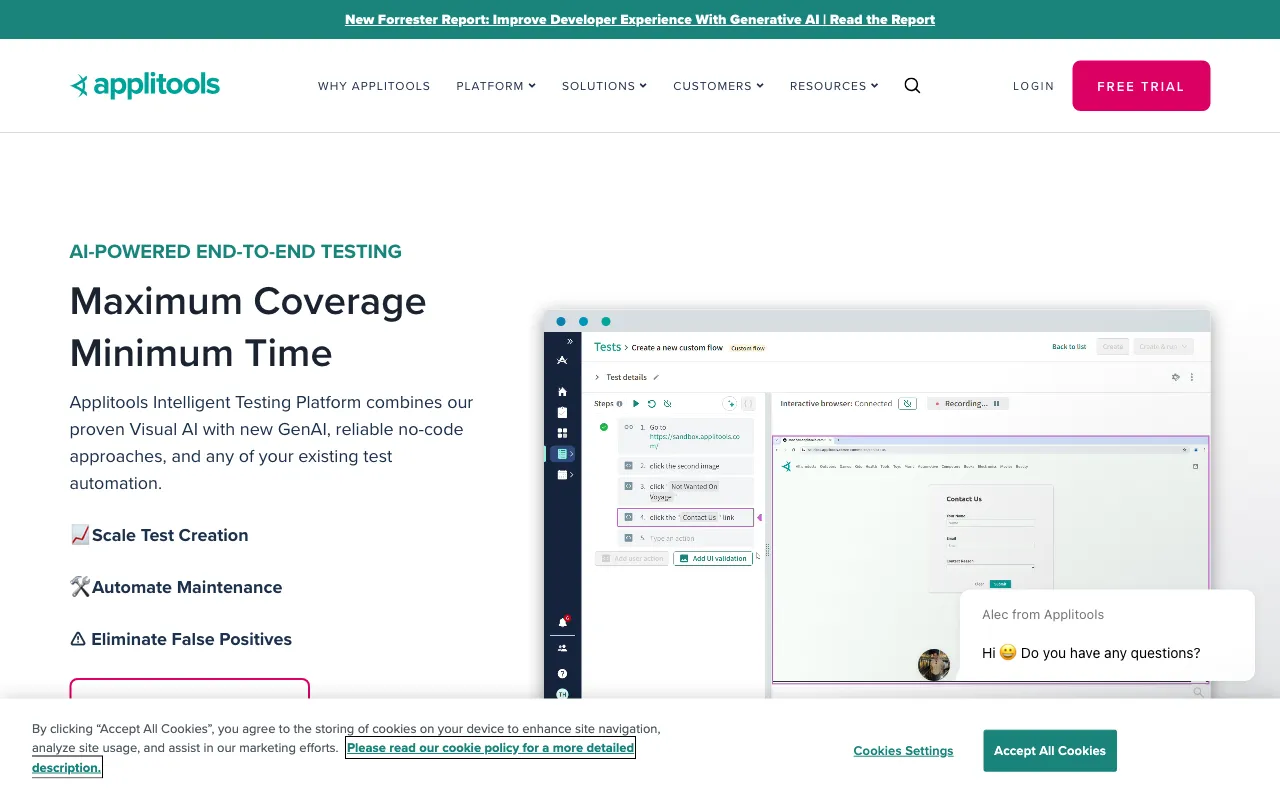
Applitools makes automated testing way more efficient by using Visual AI and GenAI throughout the testing process. Teams can get a lot more coverage while spending less time on the boring stuff like maintenance and dealing with false alarms. The platform helps create tests much faster than before and covers more ground too. When you compare it to manual testing, the time savings are pretty significant which means you can release faster and keep users happier. They really focus on helping teams "write fewer tests with higher confidence" and catch UI bugs across different formats.
The platform works as an all-in-one solution that helps improve quality while keeping costs down. It plays nice with lots of development tools and frameworks that teams already use. You can test pretty much everything - mobile apps, PDFs, web apps and individual components. Plus you get flexible options for deployment whether you want it on-premise in the cloud or as SaaS. Their AI has been learning from real-world testing for over 10 years now which makes it super accurate and fast. For enterprise users they've got all the important security stuff covered like ISO 27001 and SOC 2 Type II certifications making it a reliable choice for different industries and use cases.
Link: https://www.applitools.com/
Diffblue
AI-powered testing tool that writes Java unit tests
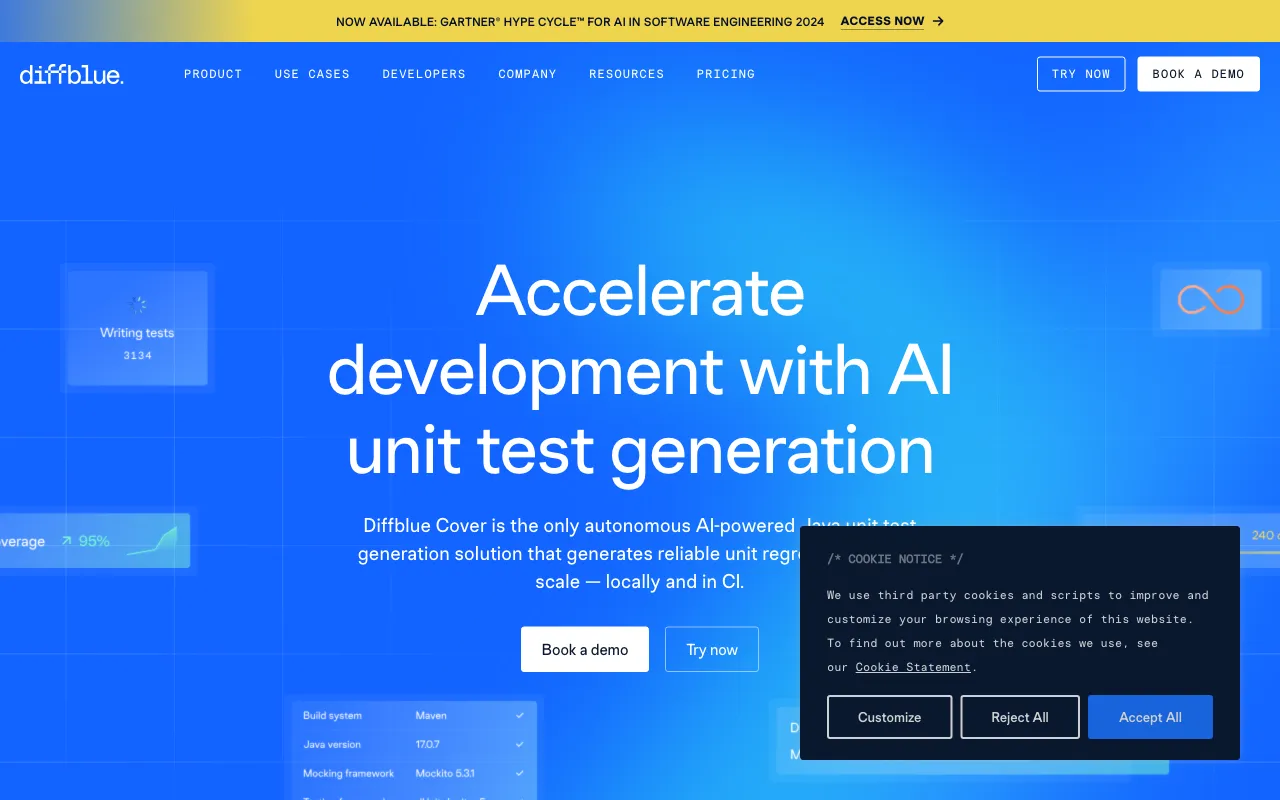
Diffblue Cover uses AI to make quality testing way better and faster. It automatically builds Java unit regression tests that you can run locally or in CI pipelines. Unlike typical LLMs or code completion tools it relies on reinforcement learning which means the tests will always compile run and work right. Since it operates on-premise your code stays secure and never leaves your environment. It helps with quality by generating tests for tricky code boosting coverage and working smoothly with CI/CD pipelines so test failures don't slow down development.
Quality assurance teams see big advantages with Diffblue Cover. It speeds up unit test creation about 250 times faster than writing them by hand which helps teams hit and keep their code coverage goals. This means teams can release faster deal with quality gates better and let developers focus on more important work instead of writing and fixing tests. In the end Diffblue Cover lets teams work on higher-value tasks while keeping code quality high and moving development along quickly.
Link: https://www.diffblue.com/
askui
Intuitive AI-powered testing that mimics human interaction.
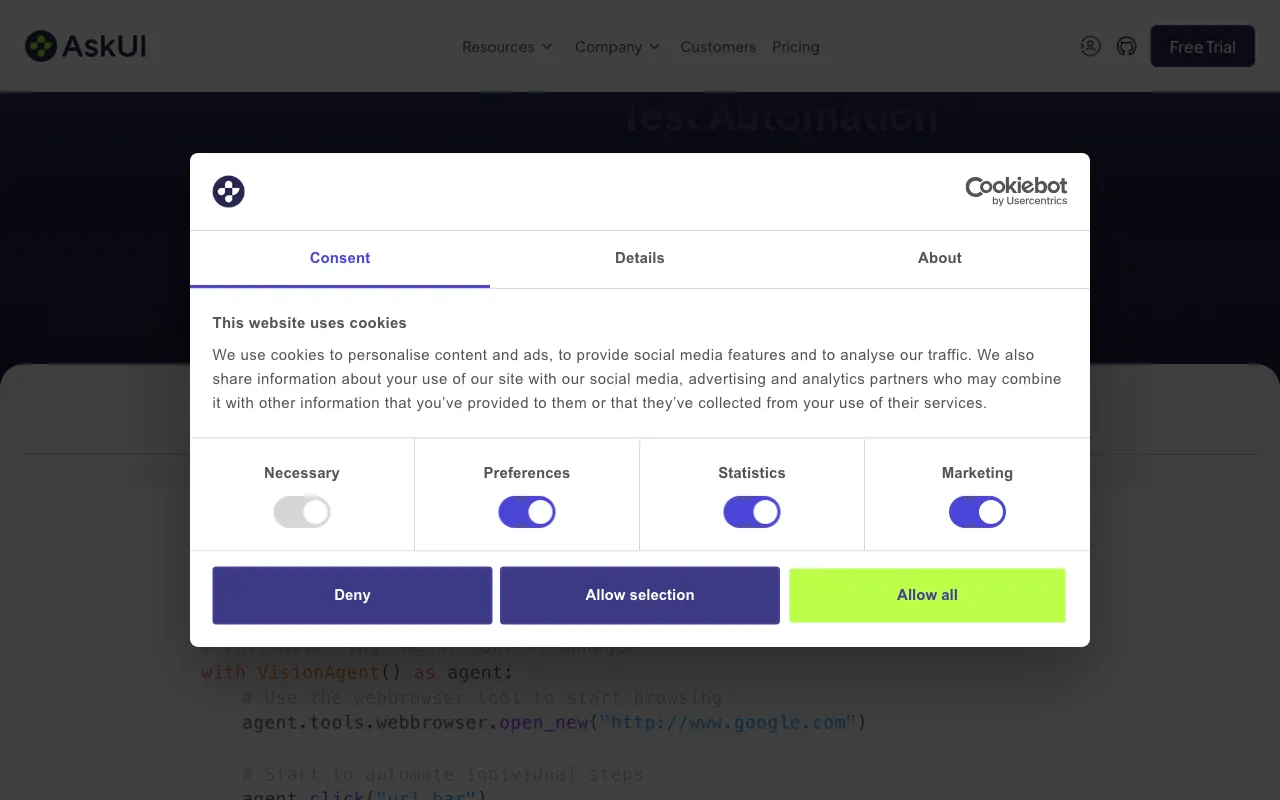
AskUI uses smart AI Vision Agents to handle various quality assurance tasks like test automation document processing and mobile testing. These agents use advanced visual recognition to work with software just like a human tester would, seeing and understanding what's on screen. This makes complex UI testing much easier especially for tricky actions like drag-and-drop - something that impressed a developer at Pickert & Partner who noted how simple AskUI made these challenging tasks. Through special retraining loops, the platform achieves really high accuracy (over 99.9%) which helps QA teams work more efficiently.
When it comes to quality assurance AskUI has some clear benefits. You can integrate your own AI models if you want which gives you flexibility to customize testing for specific needs. The platform takes security and compliance seriously which is super important for regulated industries that need careful QA processes. AskUI is also built to scale up easily for big enterprise use - Deutsche Bahn for example has seen major improvements in their test automation efficiency since using it. By handling repetitive work the platform lets QA professionals spend more time on strategic thinking and analysis that really needs human insight.
Link: https://www.askui.com/
ACCELQ
AI-powered test automation for seamless quality assurance.
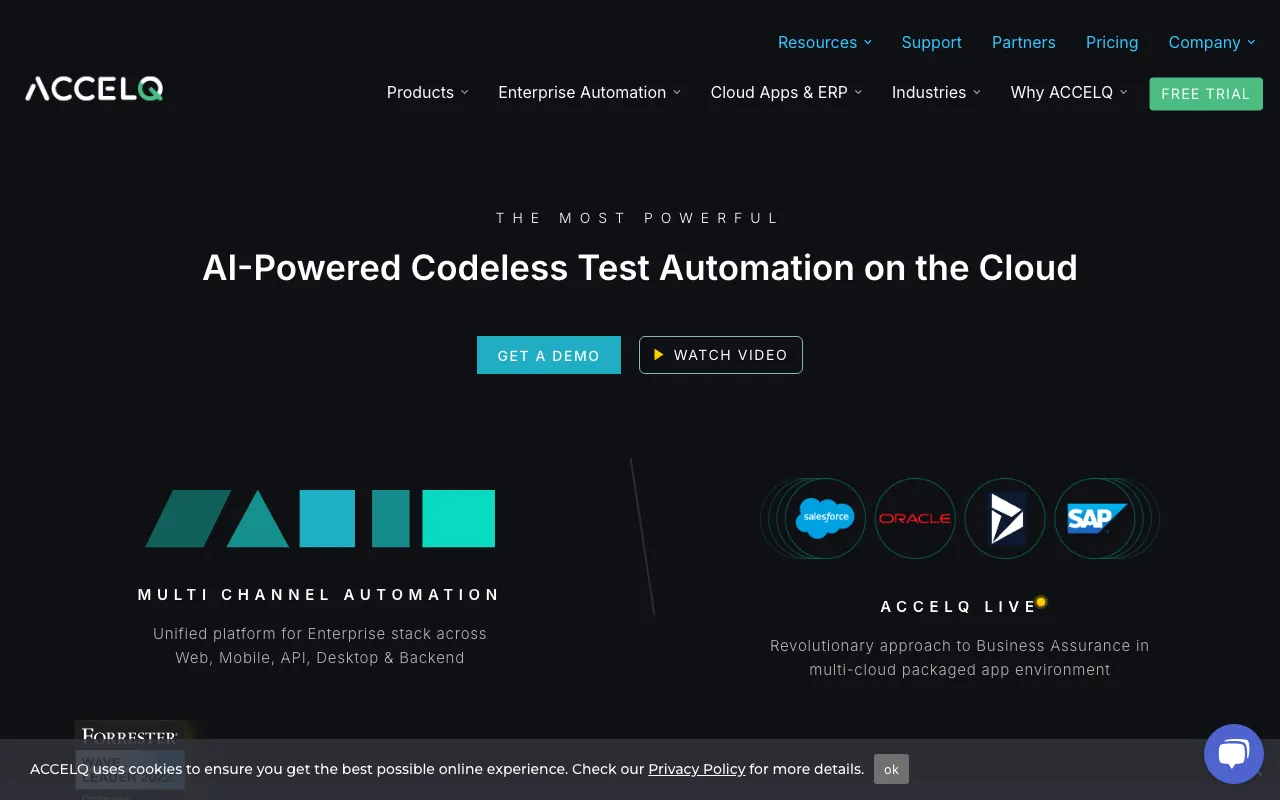
ACCELQ is a smart test automation platform that brings together AI and codeless testing for web, mobile, API and desktop systems. The platform makes it easier for teams to handle quality assurance across different environments without needing to write complex code. It's built to help businesses automate their testing process efficiently while working with various cloud setups through their ACCELQ LIVE feature which speeds up delivery times.
For QA teams looking to improve their testing workflow ACCELQ provides a unified space where different team members can work together effectively. The platform lets functional testers, engineers, product owners and QA managers collaborate on the same system which helps streamline the entire process. By removing the need for coding, it enables more team members to participate in automation testing which takes pressure off the technical staff. The platform integrates smoothly with existing tools and can handle different types of applications making it particularly useful for companies dealing with complex software systems. Teams using ACCELQ often see better results through faster testing cycles and less time spent on manual test creation. Its ability to work across various application types from web apps to APIs makes it a solid choice for modern testing needs while helping organizations keep up with quality standards in their software development.